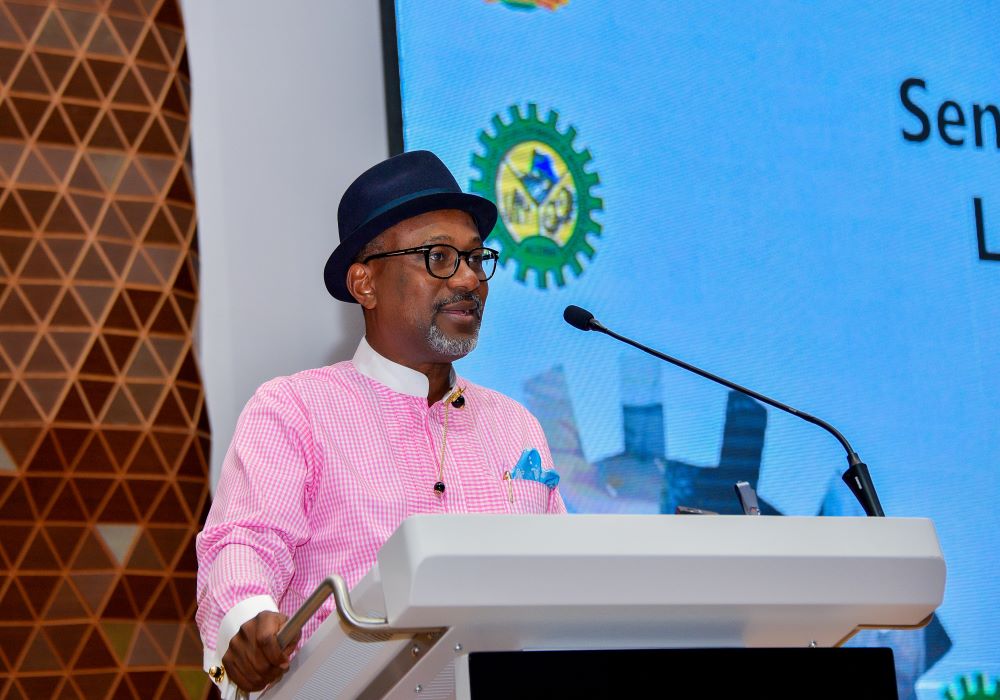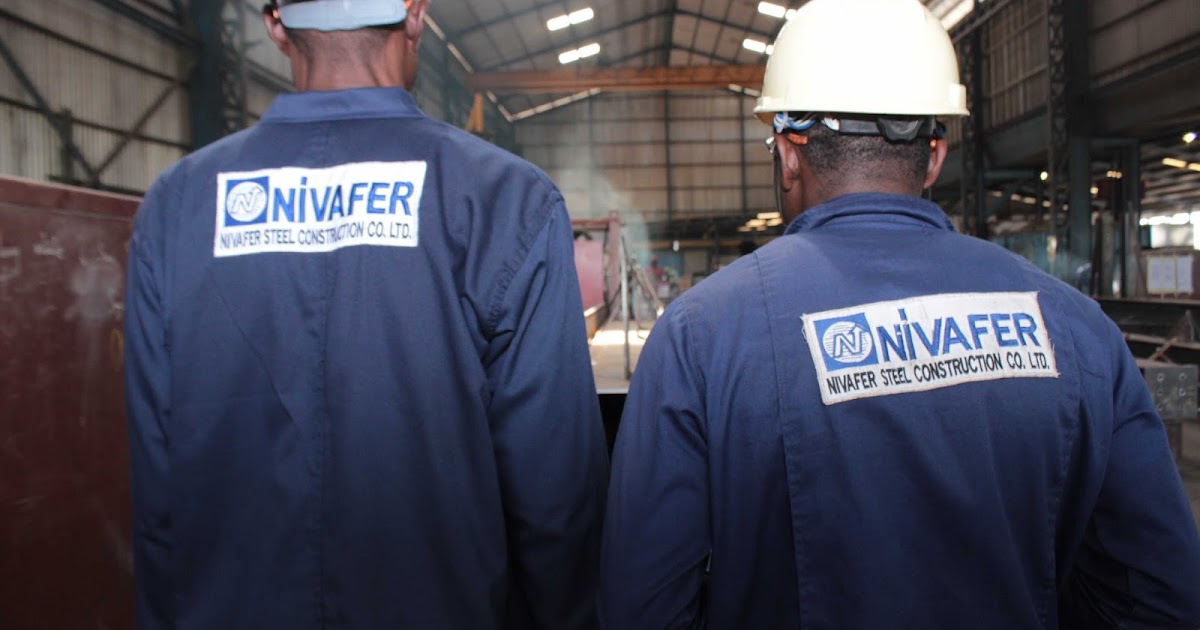Oil
SPDC wins 2015 PETAN Local content operator award

By Yemie ADEOYE
LAGOS – THE Shell Petroleum Development Company (SPDC) has won the 2015 Local Content Operator of the Year Award by the Petroleum Technology Association of Nigeria (PETAN), in recognition of its achievements in embedding Nigerian content in the oil and gas industry in Nigeria.

General Manager, Business and Government Relations, Shell Petroleum Development Company, Mr. Simbi Wabote (right), receiving the 2015 PETAN Local Content Operator award from the Executive Secretary, Nigeria Content Development and Monitoring Board, Mr. Denzil Kentebe.
SPDC was commended for many initiatives that have promoted Nigerian content including the domestication of original equipment manufacturing services; contractor funding schemes; and the collaboration with PETAN on similar programmes and projects.
“The award is a strong endorsement for the many successful interventions we have made in the Nigerian content space and an impetus for us to continue to grow indigenous capacity for the industry,” said SPDC’s General Manager, Business and Government Relations, Simbi Wabote, while receiving the award from the Executive Secretary of the Nigerian Content Development and Monitoring Board, Denzil Kentebe.
PETAN, an association of Nigerian indigenous technical oilfield service companies in the upstream and downstream sectors, also honoured the former Managing Director SPDC and Country Chair Shell Companies in Nigeria (SCiN), Mutiu Sunmonu, with the PETAN Chairman’s award in recognition of his support for in-country capacity development. SPDC and Mr. Sunmonu were among corporate bodies and individuals who were honoured at the 10th PETAN Annual Oil Industry Awards Dinner held in Lagos recently.
PETAN Chairman, Emeka Ene, commended the awardees for their efforts, and described 2015 as “a year of celebrating the industry and those who helped to move it forward.” He said that Nigeria should continue to actively encourage the development of indigenous manpower and service providers in order to engender lasting growth in the oil and gas industry.
SPDC and other Shell companies in Nigeria continue to make a major contribution to developing the country’s human capital and contracting capacity. Some 90% of SCiN contracts were awarded to Nigerian companies in 2014. Their Nigerian content development policies are hinged on indigenous asset ownership and development of human capacity and supplier services.
For example, since 2010, SPDC has awarded five-year contracts for the building of 14 vessels to Nigerian companies to encourage Nigerian firms to play more active roles in the maritime sector. Ownership of key assets such as rigs, helicopters and marine vessels is another area of key focus.
It is recalled that PETAN had in 2013 honoured Shell Companies in Nigeria with the Local Content Operator of the Year award.
Oil
NNPC Targets 60% Methane Emission Reduction By 2031
The Nigerian National Petroleum Company Limited (NNPC) has unveiled a bold strategy to reduce methane emissions in the oil and gas sector by 60% by 2031, with an ultimate goal of achieving net-zero emissions by 2060.
This announcement reinforces Nigeria’s leadership role under the Global Methane Pledge initiative and its commitment to tackling climate change.
The Group Chief Executive Officer of NNPC, Mele Kyari, disclosed these plans during a meeting on Thursday with Robert Leahman, the U.S. State Department’s Global Methane Program Manager, and a delegation from Deloitte.
READ MORE: Atiku Gloats Over AUN’s Achievements Ahead Of 20th Anniversary
The discussions, held at the NNPC Towers in Abuja, focused on collaborative efforts to reduce methane emissions through innovative and sustainable practices.
“Reducing methane emissions is not just an environmental necessity but also a strategic imperative for Nigeria’s energy transition. We are leveraging partnerships to adopt global best practices and innovative solutions,” Kyari stated.
Key among these efforts is a pilot project in the Niger Delta, aimed at establishing emissions baselines, mitigating methane leaks, and promoting sustainable operations across Nigeria’s energy sector.
The project, a partnership between NNPC, Deloitte, and the U.S. Bureau of Energy Resources, will utilize data-driven methodologies to pinpoint and address methane hotspots.
Robert Leahman commended Nigeria’s proactive stance, describing it as a benchmark for other nations on the continent.
“Nigeria’s leadership under the Global Methane Pledge sets a standard for the continent. These initiatives will not only help reduce emissions but also drive sustainable development in the energy sector,” he said.
Kyari highlighted the broader benefits of addressing methane emissions, noting its significance for both environmental protection and economic efficiency.
“This collaboration is a game-changer. By addressing methane leaks, we’re reducing waste, saving costs, and protecting the environment. It’s a win-win for our economy and the planet,” he added.
Oil
FG Introduces New Incentives To Revitalize Nigeria’s Oil & Gas Industry
In a strategic move to revitalize Nigeria’s oil and gas sector, the Federal Government has unveiled two key fiscal incentives aimed at attracting investment and enhancing energy security.
The announcement was made by Mr. Wale Edun, the Minister of Finance and Coordinating Minister of the Economy on Wednesday.
The first initiative, the Value Added Tax (VAT) Modification Order 2024, introduces critical exemptions for essential energy products and infrastructure, including Diesel, Feed Gas, Liquefied Petroleum Gas (LPG), Compressed Natural Gas (CNG), Electric Vehicles, Liquefied Natural Gas (LNG) infrastructure, and Clean Cooking Equipment.
Read Also: Atiku Calls For Rotational Presidency Across Nigeria’s Geopolitical Zones
These exemptions are designed to reduce living costs for Nigerians, promote energy security, and accelerate the transition to cleaner energy alternatives.
The second initiative, the Notice of Tax Incentives for Deep Offshore Oil & Gas Production, offers new tax relief options for deep offshore exploration projects.
This measure aims to position Nigeria’s deep offshore basin as a premier destination for international oil and gas investments, boosting the country’s appeal to foreign investors.
These reforms are part of a broader set of policy initiatives, known as Policy Directives 40-42, endorsed by President Bola Ahmed Tinubu.
The directives reflect the administration’s commitment to fostering sustainable development in the energy sector and enhancing Nigeria’s competitive edge in the global oil and gas market.
Business
Tinubu set to approve ExxonMobil-Seplat oil deal, expands CNG bus initiative

By Yemie Adeoye
NIGERIA’s President Bola Tinubu has announced that the protracted ExxonMobil-Seplat upstream oil divestment will be formally approved by the Minister of petroleum within a matter of days, just as he announced his government’s intention to expand the Compress natural Gas, CNG buses initiative.
The President who stated this during his Independence day nationwide broadcast stated that the move is in line with his administration’s commitment to free enterprise, free entry and free exit in investments which is the hallmark of his administration investment policy.
“Fellow compatriots, our administration is committed to free enterprise, free entry, and free exit in investments while maintaining the sanctity and efficacy of our regulatory processes. This principle guides the divestment transactions in our upstream petroleum sector, where we are committed to changing the fortune positively. As such, the ExxonMobil Seplat divestment will receive ministerial approval in a matter of days, having been concluded by the regulator, NUPRC, in line with the Petroleum Industry Act, PIA. This was done in the same manner as other qualified divestments approved in the sector.”
The President also seized the opportunity to plead with Nigerians to be patient with his administration’s reform policies. “As your President, I assure you that we are committed to finding sustainable solutions to alleviate the suffering of our citizens. Once again, I plead for your patience as the reforms we are implementing show positive signs, and we are beginning to see light at the end of the tunnel”.
“Our energy transition programme is on course. We are expanding the adoption of the Presidential Initiative on Compressed Natural Gas for mass transit with private sector players. The Federal Government is ready to assist the thirty-six States and FCT in acquiring CNG buses for cheaper public transportation.
Fellow Nigerians, while we are working to stabilise the economy and secure the country, we also seek to foster national unity and build social harmony and cohesion. Our economy can only thrive when there is peace”. he enthused.




















